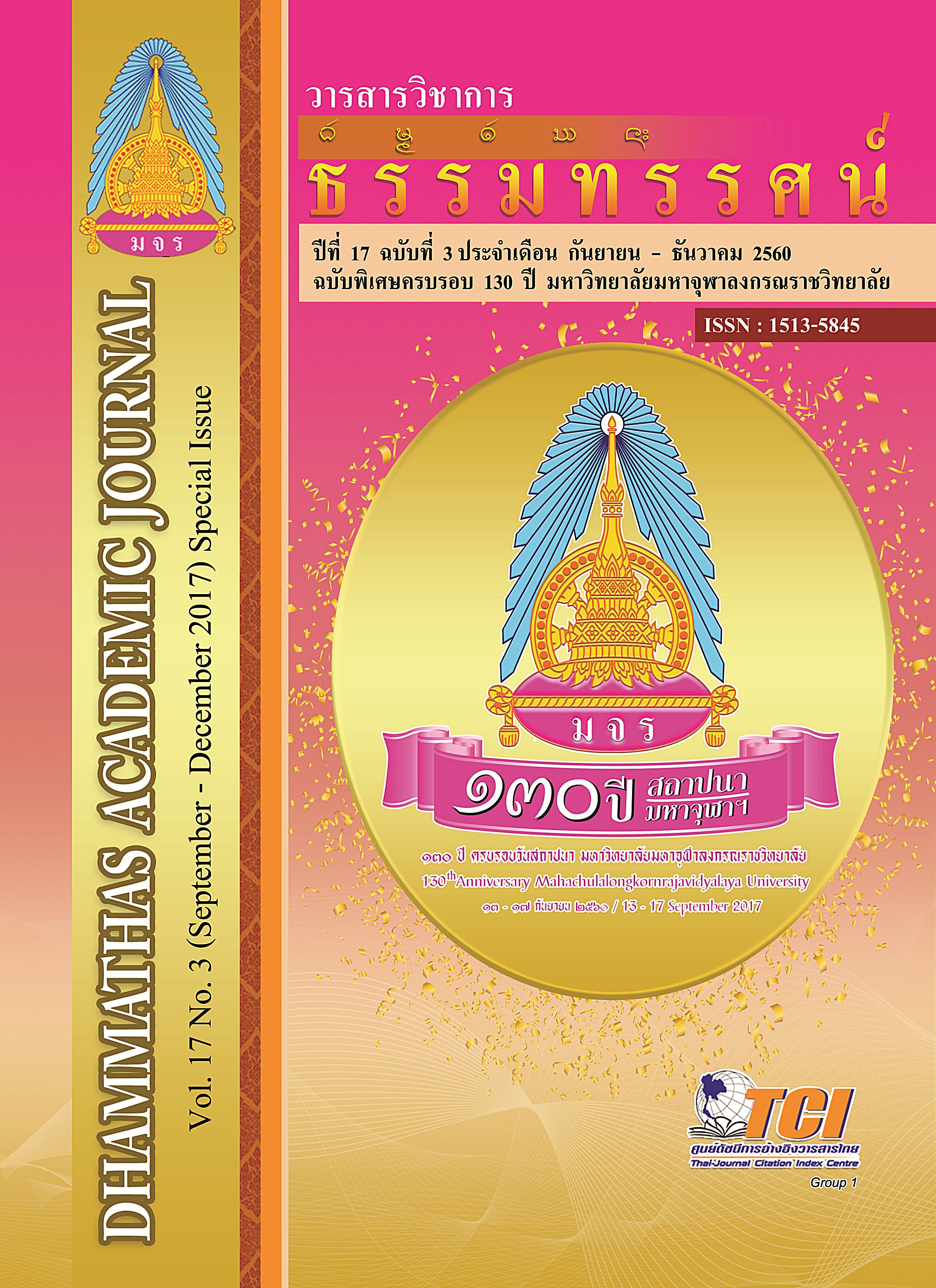A Buddhist Propagation Management of Dhamma Practice Temples in Udornthani Province
Main Article Content
Abstract
The purposes of the this study were 1) to study the theoretical concept of The purposes of the this study were 1) to study the theoretical concept of the administration, 2) to study the Management of Propagation of Buddhism, in meditation- practice in Udornthani Province, and 3) to study the way to management of propagation of Buddhism, in meditation- practice in Udornthani Province. The study was a qualitative research conducted by Documentary Research and In-depth interview. The samples were 50 key informants gained by purposive sampling. The research instrument used was In-depth interview analyzed the data by descriptive analysis.
The results of the study were as follows: A management of propagation of Buddhism, in meditation-practice in Udornthani Province was as the following seven types: planning, organizational management, human resources management, commandment or supervision, cooperation, report, and budgeting. At the same time, it still had some obstacles in the administration as in the following three sections. 1) Properties; it was commandment and supervision of which places and accommodations, toilets, kitchen, washing sink, and bedroom, were not enough and clean for people who came for Dhamma practice. 2) Staffs: it was human resources management in which people who worked for propagation were not enough, over emphasized in Dhamma preaching, proficient in material using, and had less training to propagate while there were a number of Buddhists who wanted to join. 3) Administration; it was co-operation that was still trouble in communicating to any departments and caused misunderstanding, lacking of good cooperation, and budgeting involved the propagation, such as books, pamphlets, places in the temple, and expenses about water supply, electricity, and building repair.

